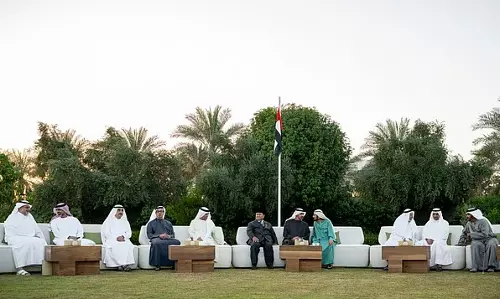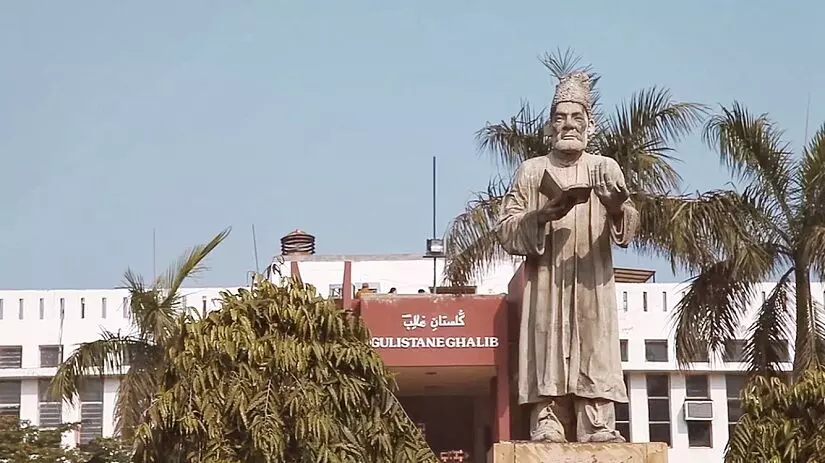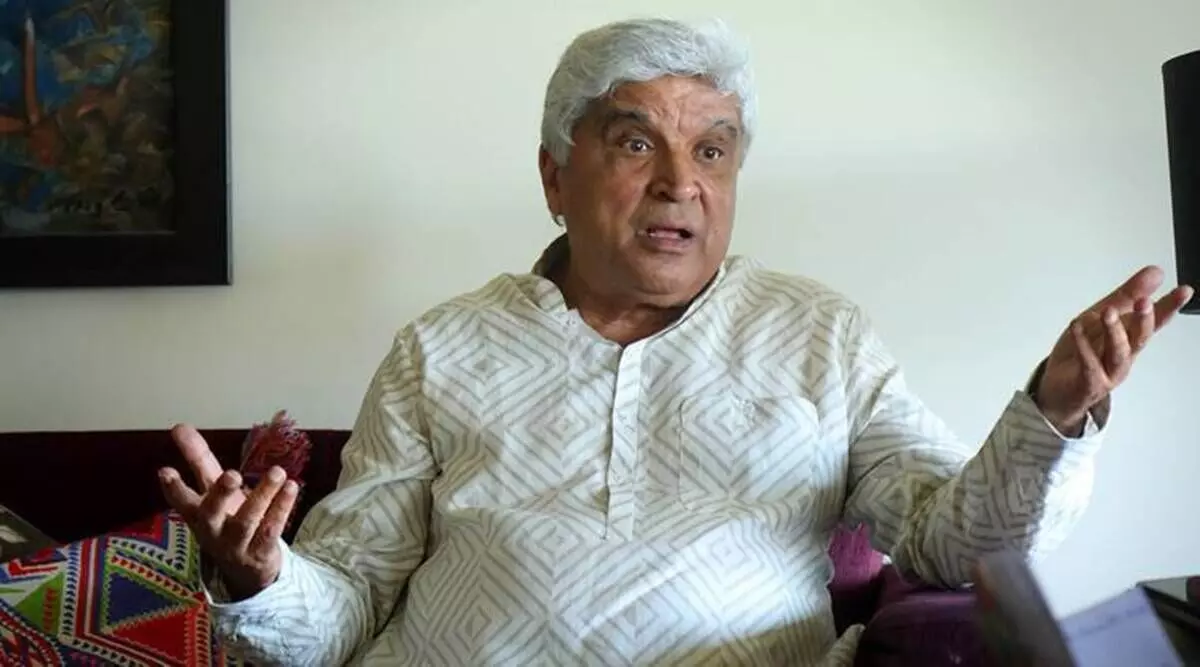
When poet Iqbal too gets scissored
text_fieldsA view of Banaras Hindu University
Three and a half decades ago, on an auspicious day, on 2 April 1984 to be exact, Squadron Leader of Indian Air Force became the first Indian to reach space. On that historic occasion, after conveying him the country's felicitations and good wishes, the then prime minister Indira Gandhi asked Sharma how India looked when viewed from the space. His reply came with the speed of light: "I can say with all pride ' saare jahan se achcha' " (Better than the whole world). A proud Indian, while standing on top of the world, would have used the line of the world's poet Allama Iqbal probably because there was not a more beautiful expression than that to epitomise India and to convey greeting. While India celebrates the 75th anniversary of independence, those lines are being sung in every corner of the country. But it is in the new India, where sharing a poster with Iqbal's picture on the Urdu Day celebration has become ground for a show cause notice from a national university that we are having to sing ' hum bul bulein hai uskee ye gulsitan hamara ' ('We are its nightingales, and it is our garden abode').
On November 8, (which is poet Iqbal's birthday) the Urdu Department of Banaras Hindu University (BHU) organised a webinar and it was in one of the posters used in social media campaign that Iqbal's picture was included. With the sangh parivar student organisation protesting, the poster was withdrawn with an apology; instead, another was released of Pandit Madan Mohan Malaviya, the founder of the university and also of Hindu Mahasabha and a grand old figure of Urdu haters. In addition to serving show cause notice to the head of Urdu department Aftab Ahmed, a committee was appointed to make an inquiry into it too. For quite some time, it has been the staple propaganda material of the 'vice chancellors' of certain social media universities that Iqbal is one who migrated to Pakistan when India was partitioned. The ABVP activists of BHU also took up the same narrative. To the theory that the poet, who had died nine years before India was divided into two, (1938) migrated to Pakistan, what can be a better reply than Iqbal's own line that God's tigers do not know vulpine tricks. Iqbal was considerably despondent about the discrimination faced by Muslims in undivided India. And he had talked to Jawaharlal Nehru on this vociferously. But partition was an idea that had not entered even his remote imagination. But those who removed Nehru from the poster of the Amrit Mahotsav of Independence cannot be expected to let go of Iqbal. But their real target is not Iqbal, but a language and a community. As a matter of fact, Urdu language occupies a unique and invaluable place in the fight for freedom of the people of the Indian sub-continent, which had made immense contributions to the factors of its cultural and artistic expressions and literacy missions.
As the official language of the first independence struggle of 1875, Urdu had become the bete noire of the British imperialism which sought to crush the country. Gradually, they branded Urdu as the language of Muslims and showered all their anger towards Muslims on the Urdu language too. But those who attribute a colour of religion to the language fail to recognise the fact that when in 1967, a demand was on for declaring Urdu the second official language of UP, two who courted martyrdom following a hunger strike were Pandit Dev Narayan Pande and Jai Bahadur Singh. Instead, the Hindutva forces are clamouring for removing Urdu from among the 22 languages listed in the Eightth Schedule of the Constitution. Urdu perhaps also faces the threat of being removed from the name boards in railway stations of north India. It is only a few weeks ago that a leading garments brand faced boycott calls and was forced to withdraw its Urdu name of a Deepavali festive line from their advertisement. Nothing is more unfortunate than the fact that a rich language that gave birth to innumerable songs of immortal love is being made victim to the cultural battering by communalist forces. Probably they calculate that through weakening Urdu, they can also damage the cultural unity that the language represents.

























